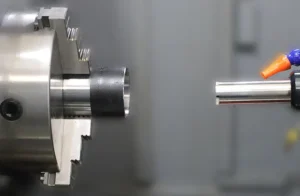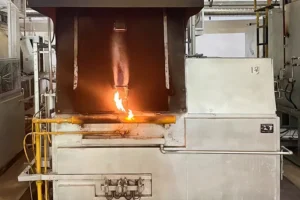
Do CNC machine programmers work hourly or salaried?
Do CNC Machine Programmers Work Hourly or Salaried?
When it comes to the world of manufacturing, CNC machine programming is a crucial aspect that ensures the efficient operation of CNC machines.
CNC machine programmers are responsible for writing the code that controls these machines, determining the movements, speeds, and functions required to produce precision parts.
However, one question that often arises in the industry is whether CNC machine programmers work on an hourly or salaried basis.
Let’s delve into this topic and explore the common compensation structures for CNC machine programmers.
Hourly Compensation for CNC Machine Programmers
Hourly compensation is a common payment structure for CNC machine programmers in many manufacturing companies.
Under this arrangement, CNC machine programmers are paid an hourly rate for the time they spend working.
This hourly rate is typically determined based on factors such as experience, skill level, and the complexity of the programming tasks involved.
Working on an hourly basis provides CNC machine programmers with the flexibility to earn more by working additional hours or taking on overtime assignments.
It also allows companies to accurately track and manage labor costs, as they only pay for the actual hours worked by the programmers.
However, there are also some drawbacks to hourly compensation.
For CNC machine programmers, the inconsistency of hours and income can be a challenge, especially during slow periods or when machine downtime occurs.
Additionally, hourly employees may not have as much stability or benefits as salaried employees.
Salaried Compensation for CNC Machine Programmers
Salaried compensation is another common payment structure for CNC machine programmers in the manufacturing industry.
Under this arrangement, CNC machine programmers receive a fixed annual salary, regardless of the number of hours worked.
This salary is typically based on factors such as experience, education, and industry demand.
Working on a salaried basis provides CNC machine programmers with a more stable income and benefits package, including healthcare, retirement plans, and paid time off.
This structure also offers a level of professional status and security that hourly employees may not have.
However, working on a salaried basis can also have its challenges.
CNC machine programmers may be expected to work longer hours or be on call outside of regular work hours without additional compensation.
Additionally, salaried employees may have less flexibility in terms of adjusting their schedules or taking time off.
Factors to Consider When Choosing Compensation Structure
When deciding between hourly and salaried compensation structures for CNC machine programmers, there are several factors to consider:
- Job Stability: Salaried positions often offer more job stability and benefits than hourly positions.
- Income Consistency: Hourly positions may provide more income variability, while salaried positions offer a fixed income.
- Work-Life Balance: Salaried positions may require longer hours or on-call availability, impacting work-life balance.
- Professional Development: Salaried positions may offer more opportunities for professional development and advancement.
- Company Culture: The compensation structure should align with the company’s values and culture.
Conclusion
In conclusion, the decision of whether CNC machine programmers work on an hourly or salaried basis ultimately depends on individual preferences, company policies, and industry standards.
Both compensation structures have their pros and cons, and CNC machine programmers need to consider these factors when choosing the best option for their career goals and lifestyle.
Regardless of the compensation structure, CNC machine programmers play a critical role in the manufacturing industry, ensuring the efficient operation of CNC machines and the production of precision parts.



